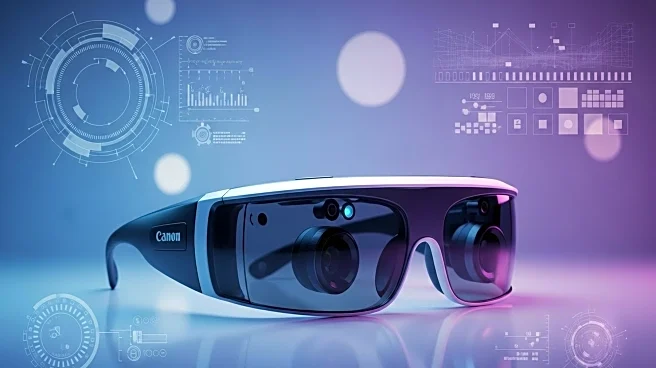What's Happening?
Meta has committed $60 billion to augmented reality (AR) development, with CEO Mark Zuckerberg describing the technology as a 'time machine to the future.' This phrase has sparked debate among industry watchers, as it frames AR as an emotional leap rather than a technical milestone. Meta's investment includes the sale of 2 million Ray-Ban-branded smart glasses, but concerns have been raised about safety, privacy, and pricing. Critics argue that the marketing rhetoric may overshadow the need for clear product promises and safety assurances, while supporters believe it could accelerate mainstream adoption of AR applications.
Why It's Important?
The debate over Meta's AR investment highlights the tension between innovation and consumer protection. As AR technology becomes more integrated into daily life, issues such as data privacy and child safety become increasingly important. The significant investment by Meta indicates a strong belief in the potential of AR to transform industries and consumer experiences. However, the mixed reactions to Zuckerberg's statement suggest that the market may be cautious, with consumers potentially waiting for cheaper and safer models before making purchase decisions.
What's Next?
Meta's AR roadmap will likely face increased scrutiny from regulators and consumers, who will demand clearer product promises and safety assurances. The company may need to balance its marketing strategies with efforts to address these concerns. Developers may be incentivized to create applications that demonstrate the practical benefits of AR, while Meta may explore pricing strategies to increase consumer adoption. The outcome of these efforts will shape the future of AR technology and its integration into everyday life.
Beyond the Headlines
The cultural implications of AR technology are significant, as it represents a shift in how people interact with digital content and the physical world. The framing of AR as a 'time machine' suggests a transformative potential that could redefine consumer expectations and experiences. However, this also raises ethical questions about the impact of immersive technologies on privacy and societal norms.









